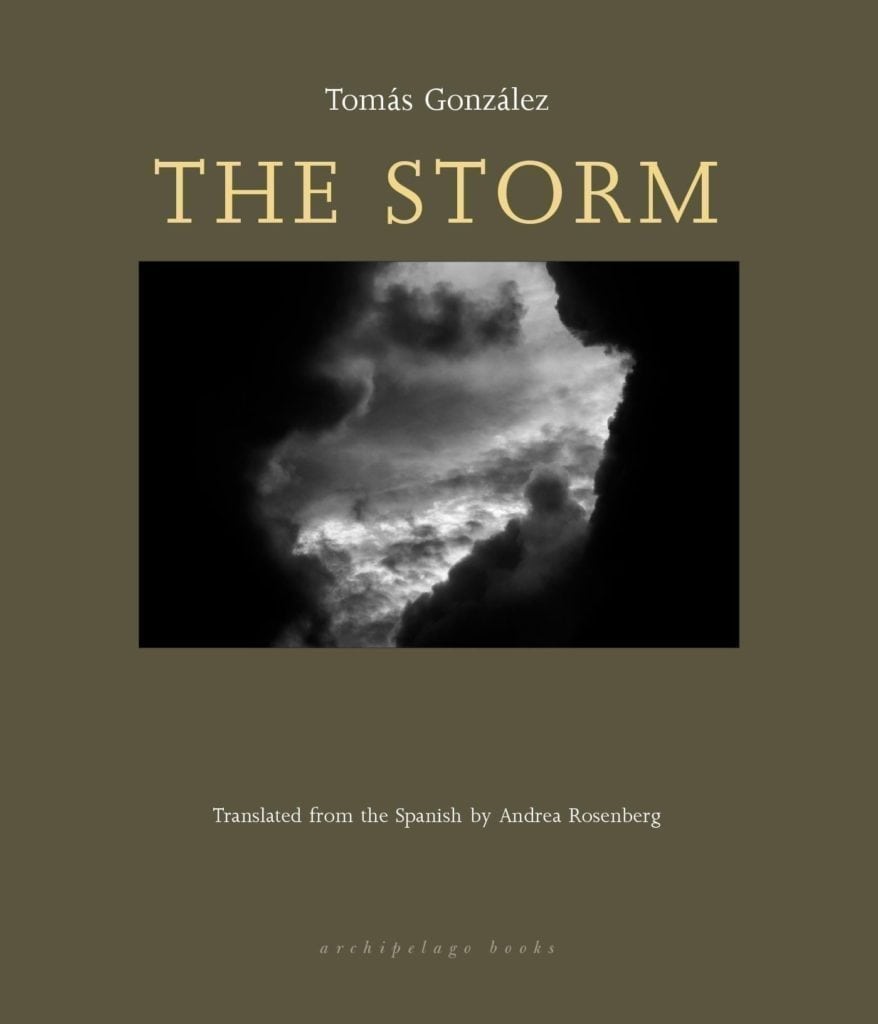Tomás González’s The Storm depicts an older man and his two sons caught on a dangerous fishing expedition...The underlying absurdity hints at a particularly profound ennui that González, a seasoned if underappreciated writer, investigates in this and other works from his remarkable oeuvre.— Héctor Hoyos, Public Books
In Andrea Rosenberg’s translation, the author’s stylistic traits—short and pointed phrases, poetic descriptions and poetic monologues—shine and linger in the reader’s ear...The Storm arrives as a welcome addition to the international recognition of one Colombia’s most prolific and poetic writers.— Nicolás Llano, Asymptote Journal
Resentment and family dysfunction intensifies between twin brothers Mario and Javier and their father (“the old bastard”) just as a storm builds at sea, where the men fish outside their Columbian seaside village under glowering skies. Self-delusion, hallucinations, anger, volatility chafe against the soothing waters and the stars above, and González, one of South America’s most acclaimed and pitch-perfect novelists, plunges you into the brutality of man and nature alike.
— Kerri Arsenault, Lit Hub
There is humor in the frequent revelation of self-delusions. There is also suspense as the storm—more interpersonal than weather-related—builds and breaks. Fabulist elements, lyrical prose, and a chorus of narrative voices give this slim novel depth and breadth.
— Kirkus Reviews
Tomás González has the potential to become a classic of Latin American literature.
— Elfriede Jelinek, Winner of the Nobel Prize for Literature
González invokes both Hemingway and Faulkner in his treatment of tortured family dynamics and laces the three-way banter in the boat with a fascinating, near-toxic atmosphere of machismo.
— Publishers Weekly
González’s last two novels, Difficult Light and The Storm [were] both hailed as quiet masterpieces at the time of their publication in Colombia... Through all his work you find the peaceful writing that admirably traces the ugliness of the world; the confidence of the narrative voice, seemingly conventional while eschewing the straitjackets of realism... [he has a] mysterious ability to uplift the commonplace and turn it into unforgettable images through careful observation and sensuous detail.
— Juan Gabriel Vásquez, The Guardian
PRAISE FOR TOMÁS GONZÁLEZ'S IN THE BEGINNING WAS THE SEA
—
In the Beginning Was the Sea [is] a book that simultaneously works as a political parable, a novel, and a mournful confessional... written in a fashion meant to hold up his own grief and disorientation as its own strange flower, an emotional germination meant both to stand on its own and be inseparable from all that surrounds it, an individual "you," straining to emerge from a ceaseless body of discovery, loss, memory, and their insatiable repetition.
— Los Angeles Review of Books
The lyrical, haunting story has the feel of a fable--a young man and his beautiful wife abandon their hectic, intellectual, night-clubbing life in the city to buy a farm on an undeveloped stretch of coast--while the spare, disquieting prose suggests the start of an art-house horror film.
— Daniel Levine, Words Without Borders
González poetically and comically captures the inevitable destruction of those who live in a world of fantasy and hubris, depicting beauty and despair by turns.
— Publishers Weekly

